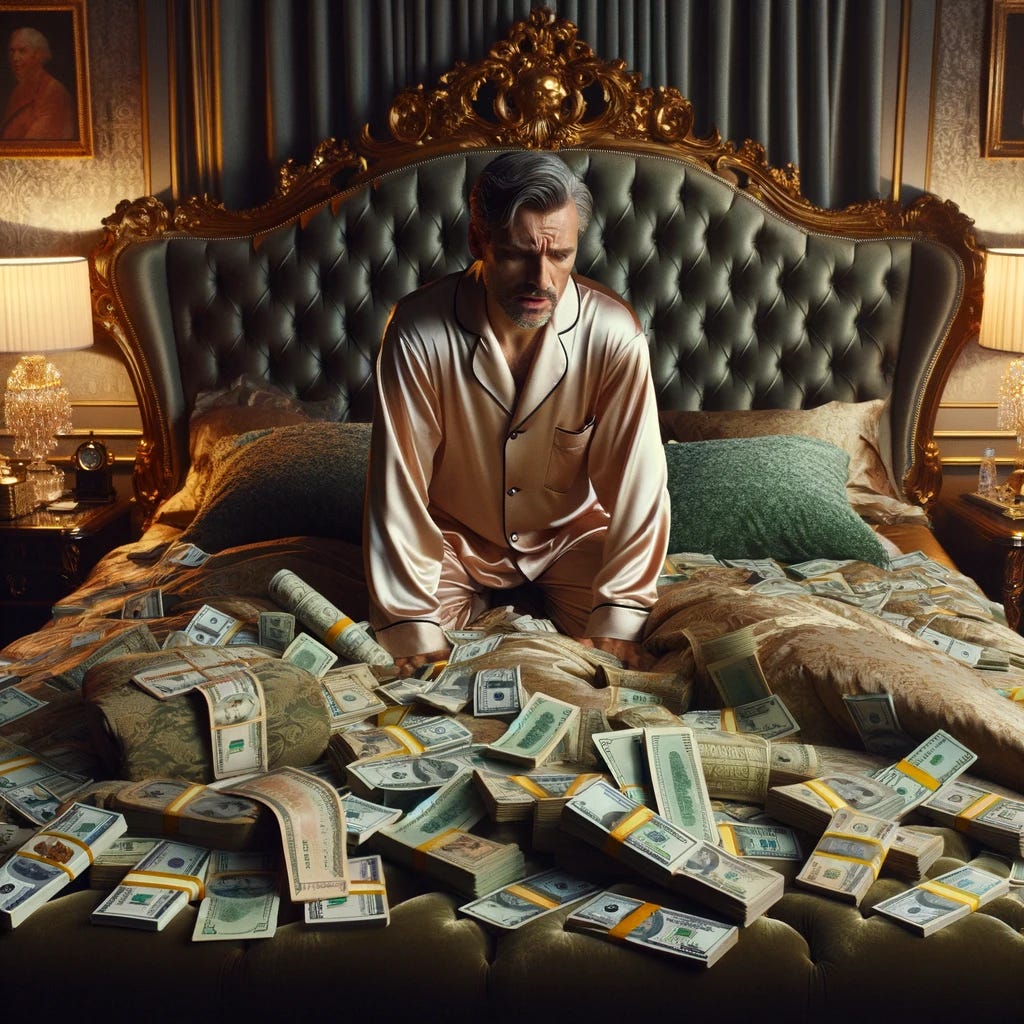Five charts to start your day
Warren Buffett's cash pile surges to $157.2 billion
You don’t count sheep to fall asleep if you have $157.2 billion in cash. That number is the size of Berkshire Hathaway’s cash pile this quarter and Warren Buffett isn’t getting any shut-eye. How has this happened?
1️⃣ Not enough investment opportunities
He hasn't found enough attractive options to invest in. So rather than purchasing stocks, he has recently sold $5 billion of them. When these shares are sold, cash is returned.
2️⃣ Dividends and income
The income from Berkshire Hathaway's businesses, such as insurance, railways and energy companies, have further increased this cash pile. Although the performance of Berkshire Hathaway's businesses has been a mixed bag, their profits still exceed the losses, leading to more cash in hand.
3️⃣ Interest rates
One final point to consider is interest rates. The Federal Reserve has been raising interest rates, which has also benefitted Berkshire Hathaway's cash reserves due to the interest this cash earns.
So if you haven’t seen it, this is the data visualisation that I published yesterday.
Warren Buffett’s cash pile surges to $157.2 billion
Source: Eeagli
Obviously, Berkshire Hathaway isn’t the only company with a huge cash pile. Apple is well-known for its large cash reserves, holding nearly $200 billion in cash and marketable securities.
There are other companies that also boast significant cash piles. Facebook, for instance, has more than $60 billion on its books. Beyond tech giants, non-tech corporations like Costco, JP Morgan Chase, and Ford are on the list of companies with substantial cash reserves.
However, what makes Berkshire Hathaway interesting is that this cash gives Warren Buffett immense fire power should a financial crisis emerge. He is in a great position to make some very interesting acquisitions.
Coming up:
Apple makes up almost half of Berkshire Hathaway’s portfolio
Apple and Microsoft make up 14.4% of the S&P 500
Investors are faced with more than one million investment choices
China’s foreign direct investment turns negative for the first time since 1998
If you would like to view these charts, then why not consider becoming a paid subscriber? It costs less that two cups of coffee for a whole month of access, plus you would be supporting me and the work I do.



